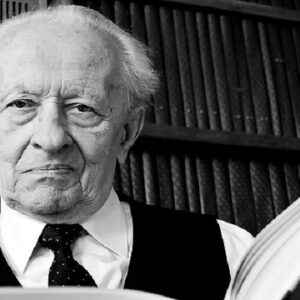Jonas Kubilius was a Lithuanian mathematician who was well-known for his contributions to probability and number theory. He began his career as an educator, lecturing and teaching at a variety of prestigious institutions, including Vilnius University and the Lithuanian Academy of Sciences. He was also the Vilnius University’s rector for 32 years. He began displaying his brilliance at a young age, having been born into a farming family in a village in Lithuania. Even as a child, he enjoyed studying and was particularly fond of science and mathematics. He had an uncanny ability to grasp mathematical concepts and even assisted his teacher in explaining difficult mathematical equations to fellow students during his time in school. He appeared to be on the verge of establishing a brilliant career when Europe’s political situation became increasingly tense. Despite the volatile political climate, he bravely continued his studies, graduated from high school, and enrolled in Vilnius University to continue his education. He eventually began teaching and continued his education by pursuing a Doctor of Science degree from Moscow’s Steklov Institute of Mathematics. Later in life, he became a member of the Lithuanian Academy of Sciences, where he promoted his scientific work in number theory and probability theory.
Childhood & Adolescence
Jonas Kubilius was born in the village of Fermos, Ervilkas county, Jurbarkas district municipality, Lithuania, on 27 July 1921. He came from a farming family. He was the eldest of four younger brothers.
He attended Rudkikiai elementary school and Ervilkas middle school before enrolling in Raseiniai high school, where he graduated in 1940.
He was an excellent student who excelled academically. Mathematics and literature were his favorite subjects. He excelled in mathematics and even assisted his teacher in explaining complex concepts to his classmates.
He enrolled at Vilnius University to study mathematics and graduated in 1946 with a summa cum laude. He had taken a year off in the interim to teach mathematics in a middle school.
Jonas Kubilius was hired as an assistant in the Department of Physics and Mathematics following graduation. He served in this capacity for two years, from 1946 to 1948.
He then continued his education at Leningrad University, earning a Candidate of Sciences degree in 1951 for his thesis ‘Geometry of Prime Numbers’.
Career of Jonas
Jonas Kubilius began working at the Lithuanian Academy of Sciences’ Institute of Physics and Technology following the completion of his Candidate’s degree. In 1952, he also took on a second part-time teaching position as a lecturer at the university, working two jobs concurrently.
In 1952, he published ‘On some problems of prime number geometry,’ in which he developed Hecke’s “analytical number theory in n dimensions” and extended it using more powerful methods.
He had set his sights on writing a doctoral thesis by this point. Linnik advised him to submit his dissertation to the USSR Academy of Sciences rather than to the Lithuanian Academy.
Jonas Kubilius began working on his doctorate at the Steklov Institute of Mathematics in Moscow after being denied admission to the USSR Academy of Sciences. He received his Doctor of Science degree (habilitation) in 1957.
The Vilnius University was going through a difficult period in the 1950s. Juozas Bulovas, who became Rector of the University in 1956, was attempting to “Lithuanianize” the university by encouraging the use of Lithuanian in place of Russian and revitalizing the Department of Lithuanian Literature.
Bulovas also dismissed some of the Soviet staff that was underperforming and rehired several professors who had returned from exile in Serbia. However, the Soviet authorities did not approve of these reforms, and Bulovas was dismissed as rector.
Bulovas’ position was offered to Jonas Kubilius. He initially refused, fearful that taking on the role of rector would interfere with his mathematical research. He did, however, accept the position as he left that it was his moral obligation to continue the work Bulovas had begun with such zeal during his tenure. As a result, he was appointed rector of the university in 1958.
As rector, he successfully resisted pressure to “Russianize” the university and promoted Lithuanian language and culture. Additionally, he authored several textbooks in Lithuanian and encouraged faculty members to write research papers in Lithuanian, English, German, and French in addition to Russian.
Additionally, he continued his mathematical research. He primarily worked in the fields of number theory and probability theory.
He stepped down as rector in 1991 after nearly 33 years, though he retained his position as a professor at the university.
Awards and Accomplishments
He was awarded the Order of the Lithuanian Grand Duke Gediminas, the Lithuanian Presidential Award, for his exceptional contributions to mathematics.
Personal History and Legacies
Jonas Kubilius was a happy husband and father. He adored his wife, and the couple enjoyed a long and happy marriage. They had a son named Kestutis, who became a mathematician, and a daughter named Birute, who became a medical professor.
He lived a long and productive life and died at the age of 90 on 30 October 2011.
Estimated Net Worth
Jonas is one of the wealthiest mathematicians and is ranked on the list of the most popular mathematicians. Jonas Kubilius net worth is estimated to be between $1-5 million, based on our analysis of Wikipedia, Forbes, and Business Insider.
Trivia
In probabilistic number theory, the Turán-Kubilius inequality and the Kubilius model are named after this eminent Lithuanian mathematician.


